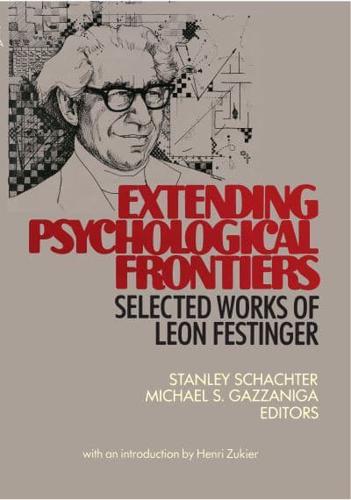Publisher's Synopsis
Leon Festinger's forty-year scrutiny of that "curious animal, the modern human being" fundamentally transformed psychological thinking and shaped an entire scientific field, that of social psychology. The twenty-four papers brought together for the first time in Extending Psychological Frontiers encompass the classic contributions and critical turning points of Festinger's long career. Spanning the post-war decades, this unprecedented volume reveals the full scope, diversity, and import of Festinger's work. Its thematic arrangement clarifies the complex network of problems that preoccupied Festinger and the unique imaginative style that characterized his intellect. Whether examining the voting behavior of Catholics and Jews, the meaning of minute eye movements, the decisions of maze-running rats, or the proselytizing behavior of cultists, Festinger consistently transcended the traditional bounds of the discipline. His theory of cognitive dissonance, which describes how people attempt to resolve the tensions that result when they hold simultaneously two inconsistent beliefs, challenged preexisting psychological theories and produced more important ideas and experimentation than any other development in social psychology. Major writings on group dynamics, decision making, and perceptual processes further underscore the impact of Festinger's research not only on psychology, but also on a wide range of intellectual fronts, from literary theory to ethnology and from historical studies to contemporary political analysis. Extending Psychological Frontiers is an invaluable resource, providing a comprehensive and coherent picture of an extraordinary body of work.









